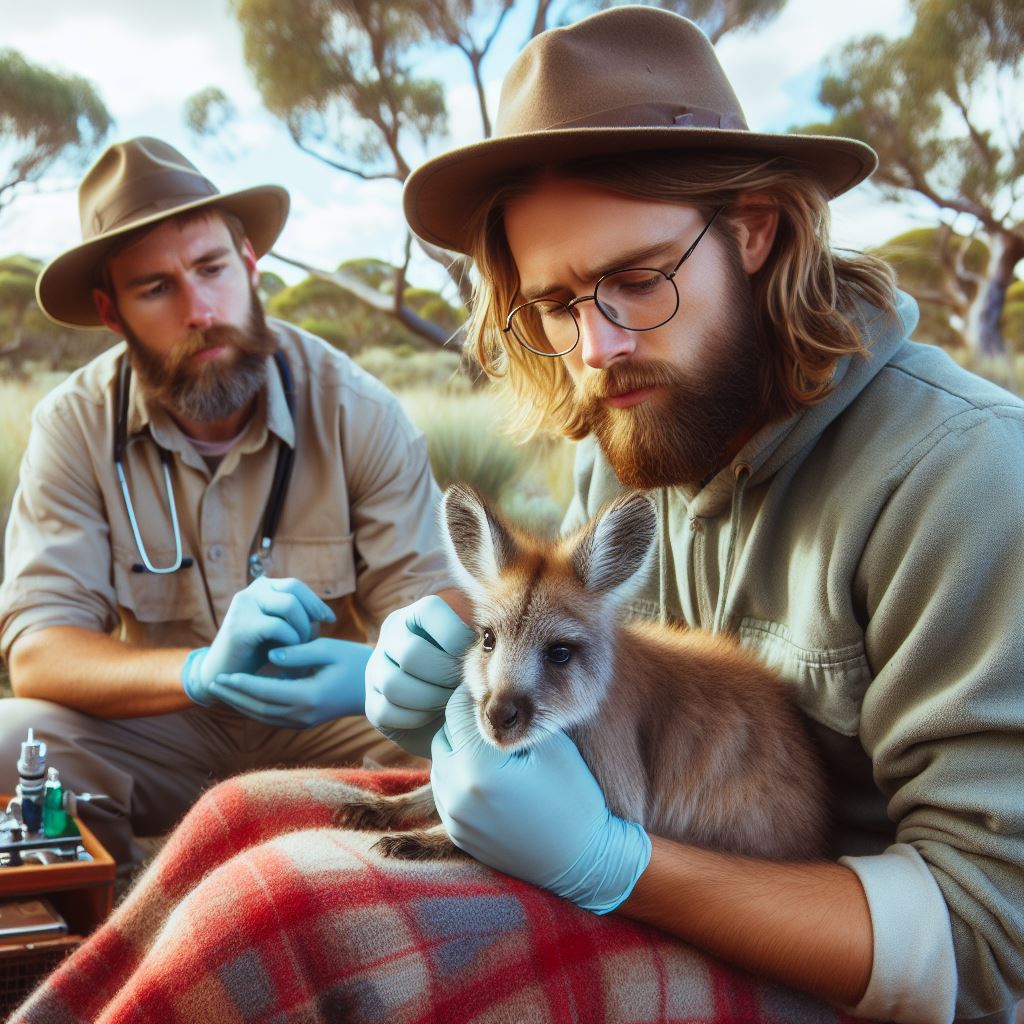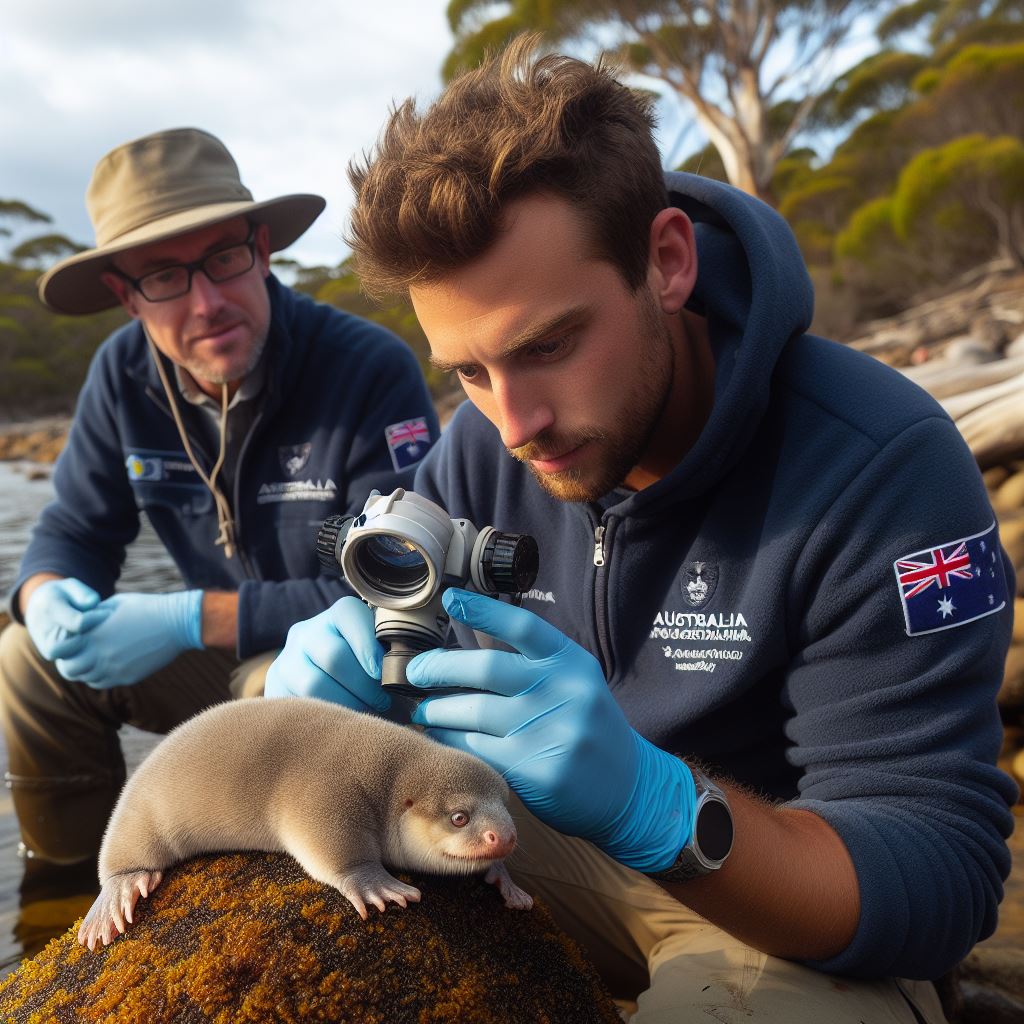Introduction
Biology internships serve as immersive opportunities for students to apply theoretical knowledge in real-world settings.
Through hands-on experiences, interns gain invaluable insights into various subfields of biology, honing their skills and preparing for future careers.
Within the Australian internship landscape, diverse opportunities abound for aspiring biologists.
From research institutions to pharmaceutical companies, internships offer avenues for students to engage in cutting-edge projects, collaborate with seasoned professionals, and contribute to advancements in the field.
The dynamic nature of these internships not only enhances practical skills but also fosters a deeper understanding of the complexities within the biological sciences.
As interns immerse themselves in laboratory settings, fieldwork, or clinical trials, they actively participate in the scientific process, driving innovation and discovery forward.
Additionally, internships provide a platform for networking, allowing students to forge connections that may shape their future academic or career trajectories.
In this introduction, we embark on a journey to explore the vibrant world of biology internships in Australia, shedding light on the opportunities, challenges, and rewards that await aspiring biologists.
Join us as we unravel the intricacies of the Australian internship scene, where passion for biology meets real-world application, paving the way for future leaders in the field.
Benefits of Biology Internships
Embarking on biology internships offers a multitude of advantages, actively enriching students’ academic and professional journeys.
Acquiring Practical Experience
Internships provide invaluable hands-on experience, enabling students to actively engage in real-world biological research and experimentation.
This practical exposure fosters a deeper understanding of theoretical concepts and equips students with the necessary skills to navigate laboratory settings confidently.
Cultivating Relevant Skills
Engaging in biology internships facilitates the development of essential skills crucial for success in the field.
From mastering laboratory techniques to honing data analysis abilities, interns actively refine their skill set under the guidance of seasoned professionals.
This immersive learning environment accelerates skill acquisition, ensuring interns are well-prepared for future academic pursuits and professional endeavors.
Expanding Professional Networks
Internships offer a unique opportunity to forge connections with established professionals within the biology community.
By actively networking with mentors, supervisors, and fellow interns, students gain insights into industry trends, career pathways, and potential research opportunities.
These relationships serve as valuable resources, opening doors to mentorship, collaboration, and future career prospects.
Elevating Job Prospects
Participation in biology internships significantly enhances students’ competitiveness in the job market. Employers value candidates with practical experience, and internships provide a tangible demonstration of proficiency and dedication.
By showcasing hands-on experience, acquired skills, and professional connections, biology interns position themselves as desirable candidates for academic research positions, industry roles, and advanced educational opportunities.
In summary, biology internships offer a dynamic platform for students to actively engage in the field, develop essential skills, expand professional networks, and bolster job prospects.
Through experiential learning and active participation, interns pave the way for future success in the dynamic and rewarding realm of biology.
Read: Must-Attend Chemistry Conferences in Aus
Types of Biology Internships in Australia
When it comes to biology internships, Australia offers a wide range of opportunities for aspiring young biologists. Whether you are interested in research, conservation, or pharmaceuticals, there are several types of internships available in the country.
In this section, we will explore the different types of biology internships in Australia and the exciting experiences they offer.
Research-based internships
One of the most common types of biology internships in Australia is research-based internships. These internships provide students with the chance to work in universities and research institutes, gaining hands-on experience in scientific research.
Interns get the opportunity to work alongside renowned scientists and academics, assisting them with their projects and experiments. It is an excellent chance for aspiring biologists to learn from experts in the field and gain practical research skills.
Conservation internships
For those interested in environmental biology and conservation, there are internships available with various environmental organizations in Australia.
These internships focus on the preservation and protection of the country’s unique biodiversity. Interns often get to participate in fieldwork, conducting studies and surveys to monitor different ecosystems.
They may also be involved in conservation projects, working towards restoring habitats and protecting endangered species. It is a rewarding internship option that allows individuals to contribute to the conservation efforts in Australia.
Pharmaceutical and biotech internships
Australia has a thriving pharmaceutical and biotechnology industry, and there are internships available for biology students interested in this sector.
Pharmaceutical companies and biotech firms offer internships where students can assist in the development of new drugs and medical technologies.
Interns may get the opportunity to work in laboratories, conducting experiments and analyzing data.
It is an excellent chance for students to gain insight into the pharmaceutical industry and contribute to advancements in healthcare.
In fact, biology internships in Australia offer diverse opportunities for students to gain practical experience and enhance their knowledge in the field.
Whether it is research-based, conservation-focused, or pharmaceutical-oriented, each type of internship provides unique learning experiences.
These internships not only help students develop their skills but also enable them to make valuable contributions to their respective fields.
If you are a biology student looking for an exciting and enriching internship experience, Australia is definitely worth considering.
Read: Innovative Chemistry Startups in Australia
How to Find Biology Internships in Australia
Finding biology internships can be a challenging task, especially in a foreign country like Australia. However, by utilizing various strategies, you can increase your chances of securing a valuable experience in the field.
Listed below are some effective methods to find biology internships in Australia:
University Career Services and Job Boards
- Utilize the resources provided by your university’s career services department.
- Check job boards specific to biology internships in Australia, both online and offline.
- Attend career fairs organized by your university to connect with potential employers.
University career services departments are valuable resources for finding internships. They often have dedicated staff members who can guide you through the process and provide access to job boards specifically tailored to your field of interest.
Make sure to visit your career services office and utilize their resources. Additionally, job boards both online and offline are excellent tools to search for open positions in biology internships throughout Australia.
Keep an eye on these boards regularly to stay updated on new opportunities.
Your Personalized Career Strategy
Unlock your potential with tailored career consulting. Get clear, actionable steps designed for your success. Start now!
Get StartedNetworking with Professors and Professionals
- Build relationships with your biology professors and seek their guidance in finding internships.
- Actively participate in biology-related events and conferences to network with professionals in the field.
- Join biology student associations or clubs that provide networking opportunities.
Building strong relationships with your biology professors can open doors to internship opportunities. Professors often have connections within the field and can recommend or introduce you to potential employers or research projects.
Attend office hours, actively participate in class, and express your interest in internships. Networking events, biology-related conferences, and workshops also offer opportunities to connect with professionals in the field.
Engage in conversations, exchange contact information, and follow up with individuals who might be able to provide internship leads.
Online Platforms and Internship Programs
- Explore online platforms dedicated to connecting students with internships, such as internship.com.au or GlobalExperiences.org.
- Research organizations and research institutes willing to accept biology interns in Australia.
- Consider applying for internship programs offered by international educational organizations or universities.
Utilize online platforms dedicated to connecting students with internships in Australia. Websites such as internship.com.au or GlobalExperiences.org provide a vast range of internship opportunities specifically tailored to international students.
These platforms allow you to search for biology internships in Australia, browse through available positions, and apply directly. Researching organizations and research institutes in Australia that accept biology interns is also crucial.
Visit their websites, review their internship programs, and reach out to inquire about potential opportunities. Furthermore, consider applying for internship programs offered by international educational organizations or universities.
These programs often provide support with visa arrangements, accommodation, and ensure a structured learning experience.
Remember, finding a biology internship in Australia requires proactive efforts. Start early, stay focused, and utilize the resources available to you.
Combine university career services, networking with professors and professionals, and online platforms to maximize your chances of securing a rewarding biology internship Down Under.
Read: Navigating Chem Grad Studies in Australia

Application Process and Requirements
Preparing a strong resume and cover letter
- Highlight relevant qualifications, skills, and experiences in your resume.
- Customize your cover letter to match the specific internship and emphasize your interest.
- Proofread both documents carefully to ensure there are no errors or typos.
Researching and selecting suitable internships
- Utilize online platforms, university career centers, and professional networks to search for available internships.
- Consider the location, duration, and requirements of each internship to determine suitability.
- Read reviews and testimonials from previous interns to gain insights into the experiences.
Meeting educational and eligibility criteria
- Ensure that you have met the minimum educational requirements for the internship.
- Check if there are any specific eligibility criteria such as age restrictions or visa requirements.
- Prepare necessary documents such as academic transcripts, references, and proof of language proficiency.
Submitting the application package
- Follow the application instructions provided by the internship program or organization.
- Submit all required documents, including your resume, cover letter, and any additional forms.
- Pay attention to the application deadlines and make sure to submit your application on time.
Once you have prepared your application package, it is important to submit it in a timely manner.
Keep in mind that competition for biology internships in Australia can be fierce, so it’s crucial to make your application stand out.
Additional tips to increase your chances of success
Here are some additional tips to increase your chances of success:
- Research the internship provider thoroughly to understand their mission, values, and goals.
- Highlight any relevant coursework, research projects, or volunteer experiences in your application.
- Connect with professionals in the field through networking events or online platforms to gain insights and potential recommendations.
- Consider reaching out to the internship provider directly to express your interest and ask any questions you may have.
- Prepare for potential interviews by practicing common interview questions and researching the organization.
- Stay organized by keeping track of application deadlines, requirements, and any follow-up actions needed.
- Be proactive and persistent in your search, as securing a biology internship in Australia may require multiple applications.
Remember, the application process for biology internships in Australia can be competitive, but with thorough preparation and a strong application, you can increase your chances of securing a valuable and enriching experience.
Good luck in your pursuit of a biology internship in Australia!
Read: Balancing Lab Work and Life in Australia
Funding and Scholarships for Biology Internships
Government-funded programs for domestic students
- Many government-funded programs in Australia offer financial assistance to domestic students pursuing biology internships.
- These programs aim to support students in gaining valuable research experience and enhancing their scientific skills.
- Eligibility criteria and application processes for these programs may vary depending on the specific organization or government department.
- Examples of government-funded programs include the Australian Research Training Program (RTP) and the Research Experience for Undergraduates (REU).
- Students can explore the websites of government departments and research funding bodies to find relevant programs and their requirements.
Scholarships offered by universities and research organizations
- Many universities in Australia provide scholarships specifically tailored for biology students seeking internships.
- These scholarships may cover various expenses such as travel, accommodation, and living costs during the internship period.
- Some scholarships also offer a stipend or monthly allowance to support students financially while they engage in research activities.
- Additionally, research organizations and institutes often offer their own scholarship programs for biology internships.
- These scholarships not only provide financial support but also create opportunities for students to collaborate with leading researchers in their field.
External grants and funding sources
- Apart from government-funded programs and university scholarships, there are external grants and funding sources available for biology internships.
- Organizations such as the Australian Academy of Science and the Australian Society for Biochemistry and Molecular Biology offer grants to support research projects.
- Students can also search for industry-specific grants and funding opportunities provided by companies and foundations.
- External funding sources often have specific requirements and deadlines that applicants need to meet.
- It is essential for students to thoroughly research and identify potential funding sources that align with their internship goals.
In essence, funding and scholarships play a crucial role in enabling biology students to pursue internships in Australia.
Government-funded programs, university scholarships, and external grants provide financial support and open doors for valuable research experiences.
Students should explore the available options and carefully follow the application processes to maximize their chances of securing funding for their biology internships.
Discover More: Physics Research Grants in Australia 101
Tips for a Successful Biology Internship Experience
Set clear goals and expectations
- Reflect on what you hope to achieve during your internship in terms of skills and knowledge.
- Create specific and measurable goals to keep track of your progress.
- Discuss your goals with your supervisor to ensure everyone is on the same page.
Adaptability and willingness to learn
- Be open to new experiences and challenges.
- Show enthusiasm and a willingness to learn from your colleagues and mentors.
- Embrace feedback and use it as an opportunity for growth.
Professionalism and strong work ethics
- Arrive on time and dress appropriately for the work environment.
- Adhere to company policies and maintain confidentiality when required.
- Take responsibility for your tasks and meet deadlines.
Networking and building relationships
- Take the initiative to introduce yourself to colleagues and professionals in the field.
- Attend company events and join relevant industry conferences or workshops.
- Seek mentorship opportunities and build connections that can benefit your future career.
Completing a biology internship is not only about gaining tangible experience but also about developing essential skills and building a strong professional network.
By incorporating these tips into your internship experience, you can make the most out of your time and set yourself up for success in the field of biology.
Find Out More: Australian Marine Life: A Study Guide
Stand Out with a Resume That Gets Results
Your career is worth more than a generic template. Let us craft a resume and cover letter that showcase your unique strengths and help you secure that dream job.
Get HiredExplore Further: Salary Trends for Chemists in Australia
Conclusion
Internships in biology in Australia offer numerous benefits and opportunities for aspiring biologists.
These internships provide hands-on experience, exposure to cutting-edge research, and networking opportunities with professionals in the field.
Students can gain practical skills, develop a deeper understanding of their field, and apply theoretical knowledge to real-world scenarios.
They can also explore various subfields of biology, such as marine biology, wildlife conservation, and genetic research.
Participating in biology internships in Australia can significantly enhance career prospects in the field.
The practical experience gained during internships makes individuals more competitive in the job market.
Employers value candidates with real-world experience, and internships provide an opportunity to demonstrate skills, dedication, and passion for biology.
Internships also allow individuals to build a professional network, which can open doors to future job opportunities.
In addition, internships offer a chance to work alongside experts in the field, learn from their expertise, and gain valuable mentorship.
This guidance can provide valuable insights into career paths and help individuals make informed decisions about their future in biology.
Therefore, aspiring biologists should consider pursuing internships in Australia to gain practical experience, expand their knowledge, and enhance their career prospects in the exciting field of biology.




